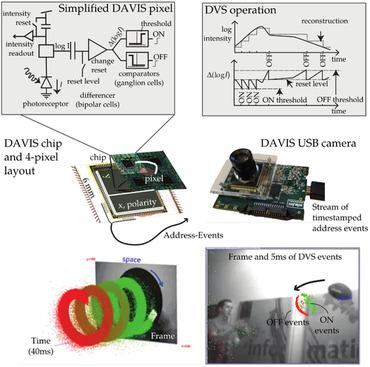Search Results for author: Thomas Pfeil
Found 7 papers, 2 papers with code
A Neural Network Subgrid Model of the Early Stages of Planet Formation
no code implementations • 8 Nov 2022 • Thomas Pfeil, Miles Cranmer, Shirley Ho, Philip J. Armitage, Tilman Birnstiel, Hubert Klahr
Planet formation is a multi-scale process in which the coagulation of $\mathrm{\mu m}$-sized dust grains in protoplanetary disks is strongly influenced by the hydrodynamic processes on scales of astronomical units ($\approx 1. 5\times 10^8 \,\mathrm{km}$).
Hybrid SNN-ANN: Energy-Efficient Classification and Object Detection for Event-Based Vision
no code implementations • 6 Dec 2021 • Alexander Kugele, Thomas Pfeil, Michael Pfeiffer, Elisabetta Chicca
In this article we propose a hybrid architecture for end-to-end training of deep neural networks for event-based pattern recognition and object detection, combining a spiking neural network (SNN) backbone for efficient event-based feature extraction, and a subsequent analog neural network (ANN) head to solve synchronous classification and detection tasks.
SOSP: Efficiently Capturing Global Correlations by Second-Order Structured Pruning
1 code implementation • NeurIPS 2021 • Manuel Nonnenmacher, Thomas Pfeil, Ingo Steinwart, David Reeb
We validate SOSP-H by comparing it to our second method SOSP-I that uses a well-established Hessian approximation, and to numerous state-of-the-art methods.
ItNet: iterative neural networks with small graphs for accurate, efficient and anytime semantic segmentation
no code implementations • 21 Jan 2021 • Thomas Pfeil
However, to exploit these benefits the computational graph of a neural network has to fit into the in-computation memory of these hardware systems that is usually rather limited in size.
On the cost of homogeneous network building blocks and parameter sharing
no code implementations • 1 Jan 2021 • Thomas Pfeil
We compensate for both the homogeneity of the network architecture and the weight sharing by increasing the number of multiply-accumulate operations by a factor of 3, respectively.
The streaming rollout of deep networks - towards fully model-parallel execution
1 code implementation • NeurIPS 2018 • Volker Fischer, Jan Köhler, Thomas Pfeil
Deep neural networks, and in particular recurrent networks, are promising candidates to control autonomous agents that interact in real-time with the physical world.
Pattern representation and recognition with accelerated analog neuromorphic systems
no code implementations • 17 Mar 2017 • Mihai A. Petrovici, Sebastian Schmitt, Johann Klähn, David Stöckel, Anna Schroeder, Guillaume Bellec, Johannes Bill, Oliver Breitwieser, Ilja Bytschok, Andreas Grübl, Maurice Güttler, Andreas Hartel, Stephan Hartmann, Dan Husmann, Kai Husmann, Sebastian Jeltsch, Vitali Karasenko, Mitja Kleider, Christoph Koke, Alexander Kononov, Christian Mauch, Eric Müller, Paul Müller, Johannes Partzsch, Thomas Pfeil, Stefan Schiefer, Stefan Scholze, Anand Subramoney, Vasilis Thanasoulis, Bernhard Vogginger, Robert Legenstein, Wolfgang Maass, René Schüffny, Christian Mayr, Johannes Schemmel, Karlheinz Meier
Despite being originally inspired by the central nervous system, artificial neural networks have diverged from their biological archetypes as they have been remodeled to fit particular tasks.


